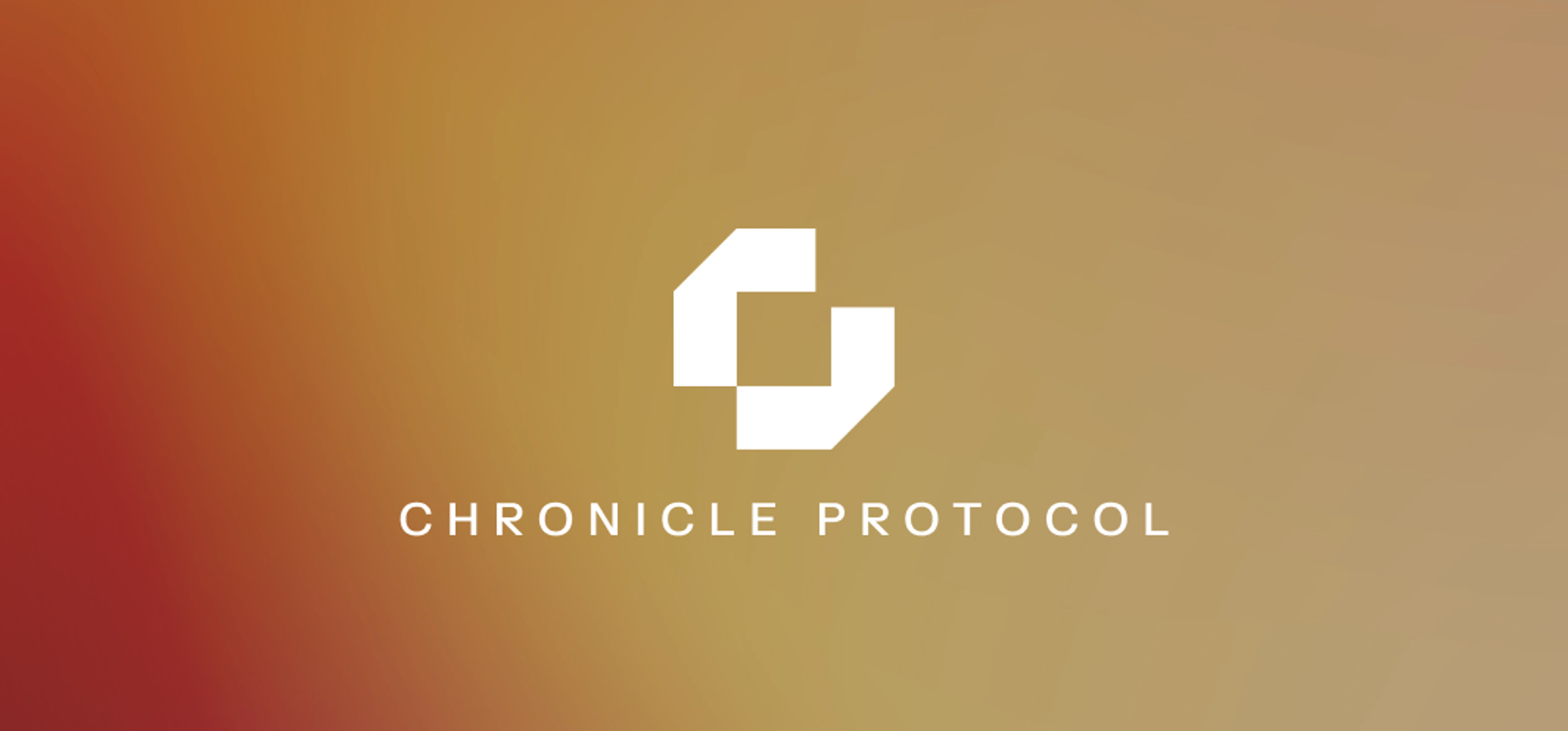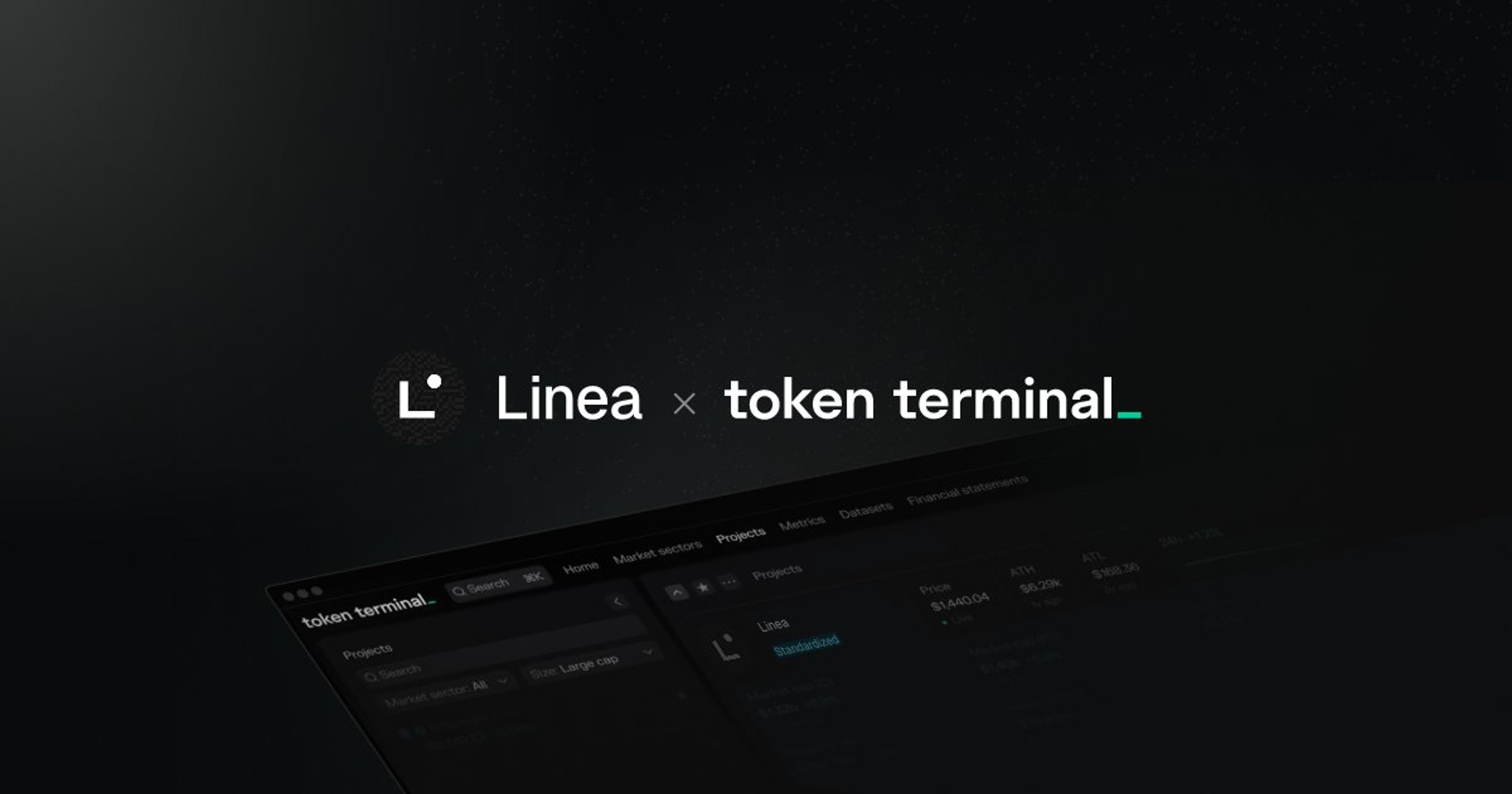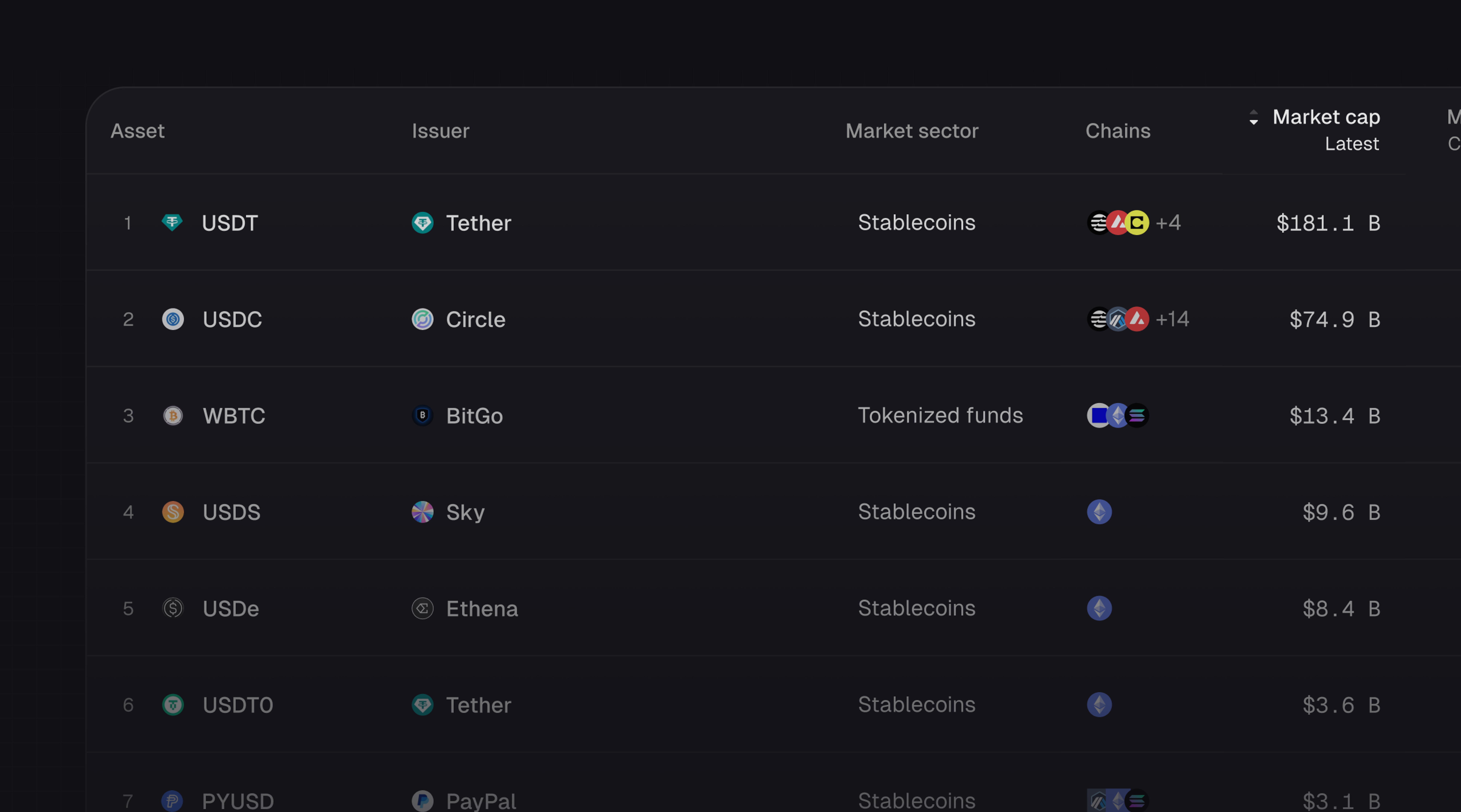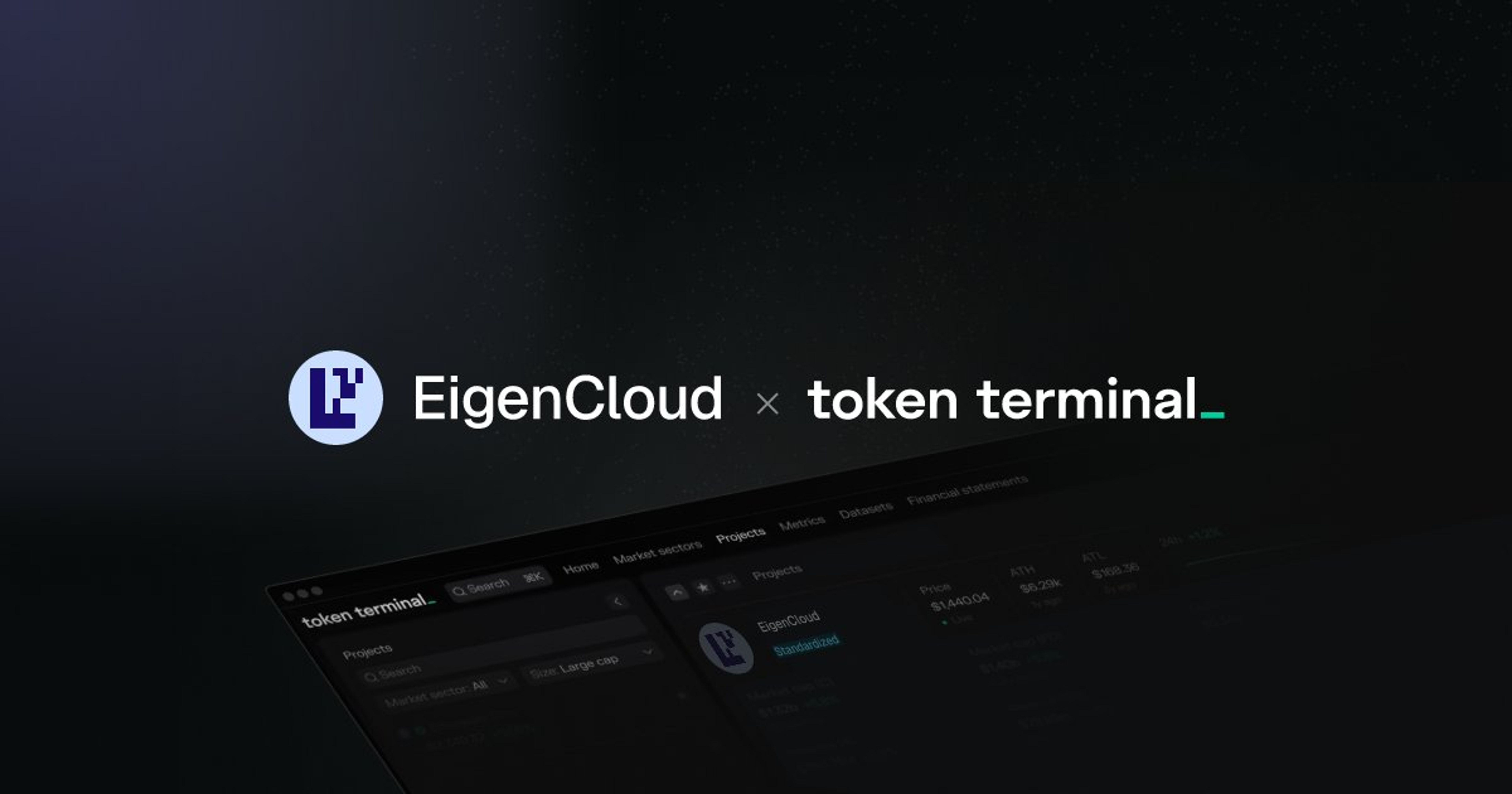Research
A deep dive on Chronicle Protocol

This research piece focuses on Chronicle Protocol, currently the exclusive Oracle for MakerDAO and the second-largest Oracle by total value secured. Let’s dig in!
Abstract
Chronicle Protocol is an Oracle service born out of MakerDAO’s Oracle Core Unit, and has launched their product publicly for the first time in September 2023. Chronicle currently provides exclusive support to MakerDAO’s total user deposits of $5.2b, making it the second largest Oracle based on total value secured. Chronicle’s architecture allows its data to be verifiable end-to-end, blockchain-agnostic, and simple for applications to integrate and monitor via Chronicle’s public dashboard. The protocol is built by Chronicle Labs, which received a grant from MakerDAO in July 2023 to build out support for the wider Maker ecosystem, and plans on initiating a fundraising round in Q1 2024.
1. Purpose
Chronicle Protocol aims to create a transparent, scalable, and cost-effective Oracle protocol, allowing verifiable data to be bridged securely onto and between blockchains.
2. What problems does Chronicle solve?
2.1 Why are Oracles like Chronicle necessary?
Blockchains are siloed environments that do not have inherent access to offchain data or information from other blockchains. This greatly limits the features accessible to blockchains and their dapps (decentralized applications), as purely onchain assets remain a very small asset class compared to offchain assets such as treasuries, real estate, and more.
Without Oracles, features seen in dapps would be extremely limited. Dapps such as stablecoin issuers and lending platforms are heavily reliant on offchain data provided by Oracles. This includes reliable asset prices aggregated from multiple offchain sources or the outcomes of real-world events.
To tackle this, Validators query and aggregate data from a variety of onchain and offchain sources. Dapps query this aggregated data through smart contracts. For example, the leading decentralized stablecoin issuer protocol MakerDAO uses Chronicle to regularly fetch the price of asset pairs (such as ETH/USD and BTC/USD). [1] MakerDAO uses these asset prices to accurately calculate the value of its deposited and borrowed assets, ensuring that its debt positions are adequately collateralized.
2.2 What are the inadequacies in the current Oracle landscape?
The problems with the current Oracle landscape can be broadly categorized into two types:
- Existing Oracle services are too costly. When retrieving data from an Oracle, dapps incur two costs: (1) a gas fee paid to the blockchain network, and (2) a query fee paid to the Oracle service.
On a blockchain with high gas costs such as Ethereum, gas expenses for publishing data onchain can become prohibitively expensive. Although Oracle gas expenses have come down considerably since the peak in 2021 due to gas optimizations, lower network congestion, and a drop in asset prices, the expansion of dapps to new chains has led to fresh demand for price data. Similarly, query fees may also be costly, depending on how much an Oracle service charges.
As an example, in May 2021, $17.4m and $20.5m were paid in gas and query fees for Chainlink (a major Oracle service) price feeds on Ethereum, respectively. 46% of the total fees paid by Chainlink users on Ethereum were used for gas payments. [2]
In September 2023, Chainlink gas payments and query fees on Ethereum amounted to $152k and $920k, respectively, with gas expenses representing 14% of the total fees paid. This indicates a trend towards more costly query fees taken by Chainlink, rather than gas expenses to the network. [3]
- Existing Oracles have limited support for emerging chains. Major Oracle services such as Chainlink have limited support for non-EVM blockchains. For instance, Chainlink only began to support data on Solana in June 2022, almost 18 months after the blockchain's public launch. [4] Furthermore, Chainlink still has not integrated support for emerging non-EVM blockchains such as Aptos and Sei. [5]
Although alternative Oracle services like Pyth Network specialize in supporting non-EVM blockchains, its performance has been inconsistent in the past, leading to incorrect liquidations on its associated dapps. [6]
3. How does Chronicle solve this?
Chronicle Protocol is currently the exclusive Oracle service for MakerDAO, the largest decentralized stablecoin issuer behind DAI.
3.1 Chronicle’s key advantages
- Chronicle Oracles updates represent significant gas savings for integrated dapps. A fundamental tradeoff that all existing Oracle protocols contend with is the number of Validators used to calculate an asset price (representing security and decentralization) and the cost of updating an Oracle (representing scalability). Typically, a larger number of Validators used results in a more secure and reliable price, but the gas required to publish this onchain also increases.
Chronicle’s architecture allows it to bypass this tradeoff. The gas required for Chronicle Oracles to update remains the same at any number of Validators. Furthermore, the Chronicle team estimates that constant-time verification is achieved at just 51,979 gas for any number of Validators. [7] In contrast, Chainlink and Redstone Oracles cost ~334,891 gas (11 Validators) and 168,248 gas (10 Validators), respectively. [8][9]
- Chronicle Oracles are chain-agnostic. Chronicle’s architecture was built to support multiple blockchains scalably, instead of a solution hyper-optimized for one blockchain. As the majority of the Oracle update process happens offchain, only one transaction required to push the data onchain. This lowers the technical barrier for Chronicle to become blockchain-agnostic across EVM and non-EVM chains alike. This is achieved via Chronicle’s unique Optimistic Schnorr design, which we go into greater detail on in Section 3.2.
3.2 Chronicle’s product architecture
Chronicle’s flagship Oracle product is Scribe, which uses an Optimistic Schnorr hybrid design to achieve the aforementioned features. Scribe launched on September 2023 with a three-year BUSL license and will convert into an open-source MIT license upon expiry. [10]
Schnorr refers to the cryptographic signatures used to encrypt information. Using Schnorr technology, data from multiple Validators can be compressed to a single signature, making the resulting data more reliable. However, verification of Schnorr signatures requires heavy computational resources, which translates to high gas costs and low execution speed especially when publishing data on Ethereum L1.
To tackle this, Chronicle Oracles will be optimistic on Ethereum L1, meaning that proposed prices are “optimistically” deemed to be accurate at first. Third parties can then dispute all proposed prices. Following a period without successful disputes, prices will then be considered finalized. Under this design, the Schnorr signature is not actually verified onchain, resulting in significant gas savings (52% and 66% for L1 and L2, respectively, per the team’s initial estimate). [11] It is important to note that the process on L2 is not optimistic, meaning that the timestamp and price data are accepted immediately after verification, without a dispute/challenge period.
Chronicle Oracles operate with the following process on Ethereum L1:
Stage 1: Validators
- Query. Validators query price data from a variety of onchain sources (e.g. Uniswap and Curve) and offchain sources (e.g. Binance and Kraken).
- Attest. Validators sign an ECDSA message which encodes the asset name, price, and the timestamp at which it was recorded.
- Aggregate. Validators participate in a p2p handshake ceremony to generate a composite aggregated Schnorr signature. A signature can only generated if a quorum amount of unique attestation messages has been reached.
- Sign. A single Validator signs an ECDSA attesting to the aggregated Schnorr signature.
Stage 2: Relays
- Push onchain. On Ethereum L1, permissionless relays obtain the optimistic Schnorr signature, its associated price, and timestamp. Relays then push this data onchain to the Optimistic Scribe Oracle smart contract.
Stage 3: Optimistic Scribe Oracle smart contract
- Verify. The Optimistic Scribe Oracle smart contract receives the Schnorr signature, the ECDSA attestation, and the associated price and timestamp data. The smart contract verifies that the ECDSA signature, signer, and timestamp are legitimate. If all checks pass, the Oracle price and timestamp are set as optimistic (assumed to be true) values, and a 10-minute challenge period begins.
- Challenge. If challenged, the Optimistic Scribe Oracle smart contract verifies the Schnorr signature data and checks whether it matches the stored optimistic price and timestamp. If the challenge is successful, the optimistic price and timestamp are removed, the Validator that signed the optimistic price and timestamp is banned, and the Challenger receives a set amount of ETH as a bounty reward. If there are no successful challenges, the optimistic price and timestamp values are finalized.
- Use. Integrated dapps retrieve the relevant price data via smart contracts and use the prices in their protocol.
The infrastructure and tooling used to build Chronicle’s Oracles are varied to achieve redundancy. As numerous Validators and clients are used to query offchain data, this prevents the entire Oracle service from ceasing to function in the case that a single piece of infrastructure fails. [12]
3.3 Principles behind Chronicle’s architecture
With the launch of Scribe, Chronicle Protocol aims to provide an Oracle service aligned with the STARS principle:
- Scalable. Chronicle’s Oracles are blockchain-agnostic, simple to deploy, and have a low gas cost per price update. Gas expenses per update for Chronicle’s V3 Oracle are approximated by the team to cost $2.25 and $0.30 for L1 and L2, respectively. The Chronicle team estimates that updates on L1 will use 80% less gas compared to an average Chainlink Oracle update, as seen in Figure 2 above.
- Transparent. All historical data provided by Chronicle is verifiable end-to-end via Chronicle’s public Oracle dashboard. [13] The dashboard also enables tracing Oracle prices down to its individual Validator prices, which can then be further broken down into queries of raw data sources like Coinbase or Binance.
- Accessible. Chronicle Oracles will be self-serve and plug-and-play, allowing protocols to integrate their prices without assistance from the Chronicle team via an onchain subscription and payment model. [14]
- Resilient. Chronicle uses parallel channels to bring prices onchain, allowing data to keep flowing even if one or more data sources are unavailable. [15]
- Secure. Chronicle allows third parties to submit fraud-proofs at any time to disable malicious price Validators. [16]
4. The team behind Chronicle
4.1 Chronicle Labs
Chronicle Labs was founded by Niklas Kunkel, who co-developed the first Oracle protocol in 2017 to bring reliable and accurate prices for the US dollar onchain for MakerDAO. The team is currently comprised of 13 full-time employees, of which 9 are engineering-focused. [17] Chronicle Labs is also scaling up its hiring efforts, including the recent recruitment of a DevRel Engineer and a new open position for a Technical Project Manager. [18]
The team currently operates as an Incubating Ecosystem Actor under MakerDAO. Chronicle has been allocated a budget of 3.7m DAI and 2.2k MKR to support its development during this 12-month period. [19]
5. Current and future developments
5.1 Public launch
For the first time, Chronicle Protocol launched its product publicly in September 2023. In preparation, the team completed an audit with market-leading security firm ChainSecurity on August 30th. Chronicle’s codebase received a positive rating from ChainSecurity, with all identified issues being fixed or acknowledged following the audit. [20]
Chronicle Labs will continue as the exclusive Oracle of MakerDAO following the launch, and will work towards supporting the wider SubDAO ecosystem.
5.2 Upcoming product features
Following the public launch of its Oracle service, the Chronicle team plans on turning its focus toward supporting multiple blockchains, starting with Ethereum L2s, launching first on Polygon zkEVM. By the end of 2023, Chronicle aims to be supporting all the major Ethereum L2s.
In addition, real-world asset (RWA) Oracles will also be an upcoming focus area for the team. In Q2 2023, Chronicle released its first RWA Oracle, which tracks the net asset value of U.S. treasury bonds for MakerDAO. [21] As the value of RWA assets on MakerDAO has grown from $0.5b to $3b YTD, we anticipate that this will become a key initiative for Chronicle. [22]
5.3 Funding
Chronicle Labs plans to initiate its first founding round outside of MakerDAO in Q1 2024. The team plans on selecting investors based on their portfolio projects and how they can be integrated with Chronicle Oracles, rather than on maximizing valuation. [23]
Conclusion
Born out of MakerDAO’s Oracle Core Unit, Chronicle Protocol has publicly launched its flagship Oracle product, Scribe, in mid-September 2023. Chronicle is currently the second-largest Oracle by total value secured, as it provides exclusive support to MakerDAO’s total user deposits of $5.2b.
Chronicle’s main Oracle product, Scribe, is expected by the team to reduce Oracle update gas expenses by 66% and 68% for L1 and L2, respectively. Following the launch, the team will focus on providing product feature upgrades, such as multi-chain support and real-world asset Oracles.
The authors of this content, or members, affiliates, or stakeholders of Token Terminal may be participating or are invested in protocols or tokens mentioned herein. The foregoing statement acts as a disclosure of potential conflicts of interest and is not a recommendation to purchase or invest in any token or participate in any protocol. Token Terminal does not recommend any particular course of action in relation to any token or protocol. The content herein is meant purely for educational and informational purposes only, and should not be relied upon as financial, investment, legal, tax or any other professional or other advice. None of the content and information herein is presented to induce or to attempt to induce any reader or other person to buy, sell or hold any token or participate in any protocol or enter into, or offer to enter into, any agreement for or with a view to buying or selling any token or participating in any protocol. Statements made herein (including statements of opinion, if any) are wholly generic and not tailored to take into account the personal needs and unique circumstances of any reader or any other person. Readers are strongly urged to exercise caution and have regard to their own personal needs and circumstances before making any decision to buy or sell any token or participate in any protocol. Observations and views expressed herein may be changed by Token Terminal at any time without notice. Token Terminal accepts no liability whatsoever for any losses or liabilities arising from the use of or reliance on any of this content.
Stay in the loop
Join our mailing list to get the latest insights!
Continue reading

Customer stories: Token Terminal’s Data Partnership with Linea
Through its partnership with Token Terminal, Linea turns transparency into a competitive advantage and continues to build trust with its growing community.

Introducing Tokenized Assets
Token Terminal is expanding its standardized onchain analytics to cover the rapidly growing category of tokenized real-world assets (RWAs) – starting with stablecoins, tokenized funds, and tokenized stocks.

Customer stories: Token Terminal’s Data Partnership with EigenCloud
Through its partnership with Token Terminal, EigenCloud turns transparency into a competitive advantage and continues to build trust with its growing community.